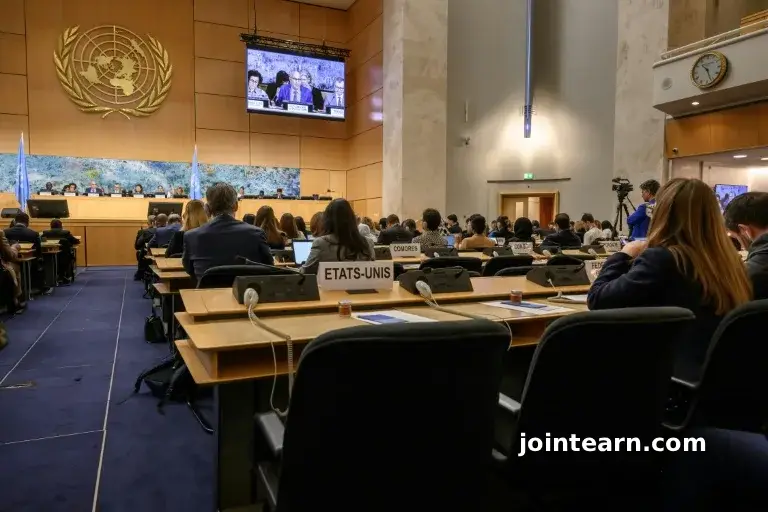
In a rare and controversial move, the United States has opted to skip its scheduled Universal Periodic Review (UPR) at the United Nations, sparking criticism from both human rights defenders and international observers. The decision marks the second time in history that a country has outright refused to participate in the UPR process, which evaluates the human rights records of all 193 UN member states every four to five years.
US Delegation Absence Raises Alarm in Geneva
US officials and rights advocates gathered at the UN headquarters in Geneva to discuss growing concerns over human rights under President Donald Trump’s administration. The absence of US delegates in September was a direct result of President Trump’s February order to withdraw the country from several UN bodies, including the Human Rights Council.
While withdrawing from the council is not unprecedented—Trump’s administration also stepped back during his first term—the decision to skip the 2025 UPR completely has alarmed global rights organizations.
“It sends the wrong message and weakens a process that has helped drive progress on human rights worldwide—including in the United States,” said Uzra Zeya, head of Human Rights First.
Historical Context of US UPR Participation
The UPR was established as part of the United Nations’ commitment to human rights transparency and accountability. All UN member states are expected to report on their human rights situation regularly.
Despite previous criticisms of the Human Rights Council as being biased against Israel, the US historically participated in UPR evaluations, including during Trump’s first term. Analysts argue that the latest withdrawal undermines US credibility on the global stage.
“It’s tragic and deeply ironic that we helped to create the norms as well as this process that we are now backing out of,” a former senior US official told AFP.
International Human Rights Experts Sound the Alarm
Phil Lynch, head of the International Service for Human Rights, highlighted the broader implications of Washington’s absence.
“This move really, really undermines the notion that international human rights law is inalienable and applies equally to all.”
Civil society organizations, academics, and local US officials who typically participate in the UPR were denied a platform to present findings. Nevertheless, they voiced concerns over several pressing issues, including:
- Suppression of dissent and protests within the US
- Militarized immigration crackdowns
- Deployment of National Guard units in US cities
- Censorship and interference in universities and art institutions
- Lethal strikes on alleged drug trafficking operations in the Caribbean and Pacific
Calls for Global Oversight and Accountability
Many human rights defenders emphasized the importance of international oversight. Chandra Bhatnagar of the American Civil Liberties Union (ACLU) stressed the critical role of the UN system.
“The Human Rights Council, the United Nations system, and a community of nations committed to human rights and democracy can bring necessary sunlight to these abuses,” she said.
Similarly, Robert Saleem Holbrook, head of the Abolitionist Law Center, warned that as civil liberties continue to erode in the US, international forums will become increasingly vital for accountability.
A Precedent-Setting Absence
The US is now one of only two countries to refuse participation in a UPR since its inception in 2008. Previously, Israel had skipped its review in 2013 but eventually completed a postponed evaluation 10 months later.
Observers caution that Washington’s move could set a dangerous precedent, potentially encouraging other countries to withdraw from UN human rights mechanisms.
“We hope this doesn’t risk normalizing withdrawal from the council,” said Sanjay Sethi of the Artistic Freedom Initiative.
Conclusion
The United States’ decision to boycott its UPR has ignited debates about its commitment to international human rights standards. By rejecting the review, Washington risks damaging its global reputation and weakening mechanisms designed to hold all nations accountable for human rights practices. Human rights organizations, civil society groups, and UN experts are now calling on the international community to ensure that scrutiny and accountability continue despite the US absence.


Leave a Reply